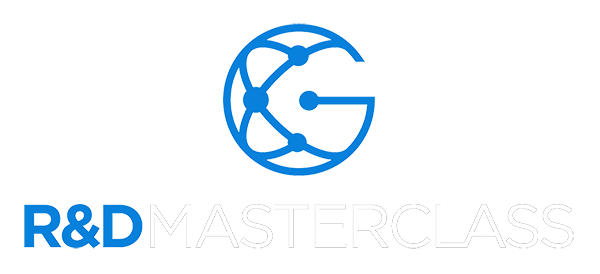Understanding research and development (R&D) is not only the responsibility of the company running a project but also of the accountants helping them to claim on tax.
While they won’t be directly involved with each intricate step of a research project, accountants need to know exactly what has taken place and the expenses involved. This allows them to claim each morsel of the project that is eligible for a tax rebate.
As they advise clients on the R&D Tax Incentive, accountants will want to keep all documentation in order and protected against audits. They will also want to know the intricacies of the client’s industry, whether it’s agriculture, biotechnology, construction, energy, manufacturing, software development or something entirely different.
If any of this information isn’t known by the accountant, they will want to upskill quickly before attempting to claim a client’s activities.
1. Prepare Documentation
The best way to ensure you’ve claimed each eligible part of an R&D project is to be proactive and organised from the start.
The types of documentation that should be collected before, during and after an R&D project include the following:
- Project planning documents.
- Design of experiments.
- Project records and laboratory notebooks.
- Design documents for system architecture and source code.
- Records of trial runs.
- Progress reports and minutes of project meetings.
- Test protocols, test results, analysis of test results and conclusions.
- Photographs and videos.
- Samples, prototypes, scrap or other artefacts.
- Contracts.
- Records of resources allocated to the project, e.g. asset usage logs.
- Staff time sheets.
- Tax invoices.
These documents are increasingly important to keep on file as the Australian Tax Office can audit R&D claims for up to 4 years.
2. Know the Steps to Proper R&D
Companies claiming R&D on tax will most likely approach accountants with 101 questions about the process, if it’s worth it, and how it will benefit the company. So, it will greatly help accountants to understand the process behind it all.
The R&D Masterclass has several other articles on these topics and we will be happy to answer any questions you may have, but some general points relevant to accountants are raised below:
Connecting every step back to your research goals is essential to ensuring that no resources or funds are wasted on processes that do not contribute directly to your objectives. By keeping a clear focus on what each step is aiming to achieve—whether it’s validating a hypothesis, disproving a theory, or gathering crucial data—you can ensure that time, effort, and money are being spent efficiently.
If a particular approach or step is not directly proving or disproving a hypothesis, it risks becoming a redundant exercise, consuming valuable resources without contributing to the overall progress of the research. This careful alignment with research goals allows for the elimination of inefficiencies and enhances the quality of the project.
Organising and analysing data effectively is critical for demonstrating the value and relevance of each research project. Identifying trends within your data can provide compelling evidence that your research is producing meaningful insights that are valuable for future development. When you can show that your research contributes to further understanding and innovation, it justifies continued investment and funding.
Research truly does beget more research; without a clear demonstration of its value, funding can quickly dry up, leaving no costs to account for. Therefore, staying organised and ensuring your data serves a clear purpose is key to maintaining ongoing support for your R&D efforts.
When planning each phase of research, it’s important to assess the methods you’re using to ensure that they are as efficient and cost-effective as possible. Sometimes, seemingly small changes can make a big difference in reducing costs while maintaining the effectiveness of your research. For example, opting for an online survey rather than organising an in-person focus group can be a more affordable and equally effective way to gather valuable data.
By carefully evaluating the methods used at each step, you can streamline the process, cut unnecessary costs, and ensure that your client’s R&D project stays within budget, ultimately benefiting all parties involved.
3. Know the Client’s Industry
Just as understanding the steps to effective R&D is important, it can be equally as essential for accountants to understand a client’s industry.
The Australian Government has presented this resource to outline each major industry that contributes to the nation’s R&D. As mentioned in this article, these include agriculture, biotechnology, manufacturing and more.
By familiarising themselves with each industry that a given client might work in, accountants can understand the complex jargon that might be used concerning an R&D project. In these three industries respectively, uncommon phrases like “microencapsulation”, “coronary stent implant”, and “electrolysis” are mere examples of the language you might encounter.
Rather than getting bogged down in the details of such language, come prepared and in tune with your client’s work, so you can get on with their tax claim.
4. Stay Informed and Up to Date on R&D Tax Incentive Changes
Understanding the R&D Tax Incentive isn’t a one-time task—regulations, processes, and eligibility criteria can evolve over time. It’s essential for accountants to stay informed about any changes to the tax incentive, as failure to do so could result in missed opportunities for clients or even errors in claims. Regularly reviewing updates from the Australian Tax Office (ATO), attending webinars, or joining industry-specific forums can help accountants remain up to date.
Additionally, building a network of peers and professionals in the R&D space can provide valuable insights and keep you ahead of the curve. As tax laws and the business landscape evolve, continuous learning ensures that accountants are equipped to handle any new challenges and maximise the benefits for their clients. Being proactive in keeping your knowledge current will set you apart as a trusted advisor who can navigate the complexities of the R&D Tax Incentive with confidence.
5, Upskill with R&D Masterclass
If you’re an accountant who’s still grappling with the complexities of the R&D Tax Incentive and are looking for a clear, effective way to navigate the process, R&D Masterclass offers comprehensive online workshops and courses designed to help you gain a deeper understanding.
These expert-led sessions will equip you with the knowledge and confidence to support your clients and maximise their claims. By signing up today, you’ll be taking the first step toward mastering the intricacies of the R&D Tax Incentive, ensuring you can effectively contribute to Australia’s innovation and growth.
Don’t miss out on the opportunity to enhance your expertise—start your learning journey now and see the benefits pay off for both you and your clients.






